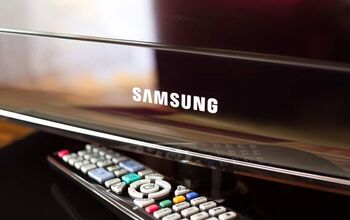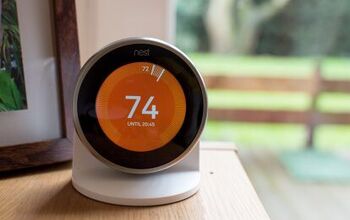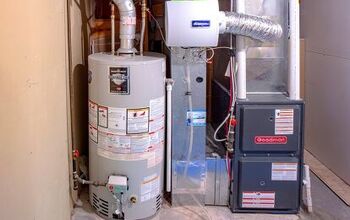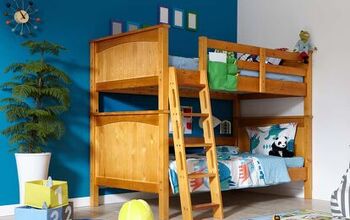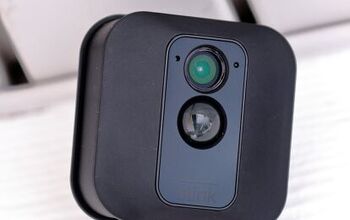What Size Wire Do I Need For A Washing Machine? (Find Out Now!)

If you’ve ever had to go shopping for electrical wire, you’re probably aware that there are numerous different types and sizes available. Different types of electrical wire serve different purposes, but aside from wire type, knowing the appropriate wire size, or gauge, is crucial to making the right choice.
So, if you came here wondering, “what size wire do I need for a washing machine?” we’re here to help! Generally speaking, in order to determine the wire gauge that you need, you must consider the carrying capacity and the amount of current the wire must conduct (measured in amps). Since most homes have a 20-amp circuit to supply the 120-volt power of a washing machine, you’ll need a 12-gauge wire.
With that said, let’s take a more comprehensive look at how wires are sized, the importance of wire gauge, and the ideal wire gauge for a variety of applications – including, but not limited to, washing machines.
Do You Need Electricial Wiring or Panel Upgrade Services?
Get free, zero-commitment quotes from pro contractors near you.

How Electrical Wires Are Sized
Wires are sized, or given a gauge, by the American Wire Gauge (AWG) system. The gauge of a wire simply describes the wire’s physical size, given a numerical rating that runs opposite to the diameter of the conductors. In other words, the larger the gauge, the small the wire diameter, and vice versa.
Common wire gauges include 2-, 6-, 8-, 10-, 12-, and 14-gauge wire. The size of the wire determines how much electrical current the wire can safely handle, which is measured in ampacity (or amps). Each wire size is given a maximum safe carrying capacity. For standard copper non-metallic (NM) sheathed cable, the amperage capacities are as follows:
| Wire Size (NM Cable) | Amperage Capacity |
| 2-gauge wire | 95 amps |
| 3-gauge wire | 85 amps |
| 4-gauge wire | 70 amps |
| 6-gauge wire | 55 amps |
| 8-gauge wire | 40 amps |
| 10-gauge wire | 30 amps |
| 12-gauge wire | 20 amps |
| 14-gauge wire | 15 amps |
As this table indicates amperage capacities for standard copper NM sheathed cable, there may be cases where the amperage ratings differ. For instance, some homes have aluminum wiring and these types of wires have their own unique maximum carrying capacities.
Solid vs. Stranded Wire
Whether you’re trying to find the ideal wire for your washing machine or for some other household application, it’s important to also keep in mind the wire style that best suits your needs. Some types of wire are stranded, and others are a single solid copper conductors.
For installations that use metal conduit, solid wires don’t typically pull as easily if the conduit has a significant amount of bends. On the other hand, solid wire is often simpler to fasten under screw terminals, like those found on typical switches and receptacles.
In standard usage, however, the wire conductors in either conduit or non-metallic cable for household electrical wiring will be 10-, 12-, or 14- gauge wire that is a solid copper conductor.
What Size Wire Do I Need for a Washing Machine?
Now that you understand how wires are sized and the amperage capacities of the most common wire gauges, what size electrical wire should be used for a washing machine? In most cases, laundry rooms are outfitted with three distinct circuits: a 20-amp, 30-amp, and 15-amp circuit.
The 120-volt, 20-amp circuit, in most cases, supplies the receptacle for the washing machine. This means that you generally need a 12-gauge, as the amperage capacity of this size wire is 20 amps. Most washing machines will run on these standard 120-volt household outlets, however, there are some exceptions.
- Washing machines with an electric dryer: These require a 208/240 volt, individual, properly grounded branch circuit with a three prong GFCI receptacle, protected by a 30-amp circuit breaker. This means that you’ll need a 10-gauge wire to accommodate the 30 amps.
What Size Wire is Needed for the Dryer?
Now that you know what size wire is generally required to service your washing machine, what about the dryer? As previously mentioned, the second circuit found in most laundry rooms is 30-amps, which is intended to be for running an electric dryer. Electric dryers operate on both 240-volt and 120-volt power. The latter is for the clock, timer, buzzer, and other components, while the former is for the heating element.
The dryers produced today require a specific appliance cord that has a four-prong plug, which must be used with a 120/240V receptacle. Again, this is the second circuit in a household laundry room, protected by a 30-amp circuit breaker. Therefore, you’ll need a 10-gauge wire for your dryer.
The Importance of Wire Gauge
Although fuses and circuit breakers offer excellent protection against overheating and overloading wires, they are not absolute. Both are designed to detect current overloads and then trip (or “blow) before the wires dangerously overheat. However, they are not foolproof and it is still crucial to protect against surpassing the amperage rating of any circuit by plugging too many appliances into them.
Generally speaking, there is a risk for danger whenever an appliance or device tries to draw more power from a circuit than what the wire gauge is rated for. For instance, if you were to plug a heater that is rated for 20 amps into a 15-amp circuit with 14-gauge wires, this creates a very dangerous situation. If the circuit breaker were to fail to function properly, the heater will draw more electrical current than the wires can handle and potentially ignite surrounding materials.
This is exactly why choosing the right wire size for your washing machine is so important. On the opposite side of the spectrum, there is no danger involved in plugging appliances that have mild electrical loads into circuits that have a higher amperage rating and heavier gauge wires. So, when in doubt, there is something to be said about choosing a heavier gauge wire over a lighter gauge one.
To help further put things in perspective, the following table outlines some common electric wire uses, along with their required wire gauge and rated ampacity:
| Wire Application | Wire Gauge | Rated Ampacity |
| Extension cords (light-duty) | 16-gauge | 13 amps |
| Low-voltage lighting and cords | 18-gauge | 10 amps |
| Lamps, light fixtures, and lighting circuits | 14-gauge | 15 amps |
| Washing machines | 12-gauge | 20 amps |
| Bathroom, kitchen, and outdoor outlets | 12-gauge | 20 amps |
| Electric dryers, electric water heaters and 240-volt window air conditioners | 10-gauge | 30 amps |
| Electric furnaces, big electric heaters | 4-gauge | 60 amps |
| Ovens, ranges, and cooktops | 6-gauge | 40-50 amps |
Do You Need Electricial Wiring or Panel Upgrade Services?
Get free, zero-commitment quotes from pro contractors near you.

Related Questions
Can I use an extension cord for a washing machine?
Since washing machines draw a significant amount of electrical current to function, it is highly advised that you avoid using an extension cord for your washing machine. In fact, household fires are commonly caused by improper use of extension cords.
What is a GFCI outlet?
GFCI, or GFI, stands for Ground Fault Circuit Interrupter. These outlets help prevent dangerous electrical shocks and decrease the threat of electrical fires by monitoring the electrical current. They will cut the power or “trip” whenever the receptacle senses an imbalance or excess flow of current down an unintended path.For this reason, GFCI outlets are required by code to be placed in wet or moist areas of the home in order to protect the occupants against being shocked.
What is the most common wire gauge found in homes?
The most widely used wire sizes in residential wiring is 12-gauge and 14-gauge. However, larger appliances like electric dryers, electric stoves, central air conditioning units, and electric water heaters may use 10-, 8-, or possibly even 6-gauge wires.

Jessica considers herself a home improvement and design enthusiast. She grew up surrounded by constant home improvement projects and owes most of what she knows to helping her dad renovate her childhood home. Being a Los Angeles resident, Jessica spends a lot of her time looking for her next DIY project and sharing her love for home design.
More by Jessica Stone



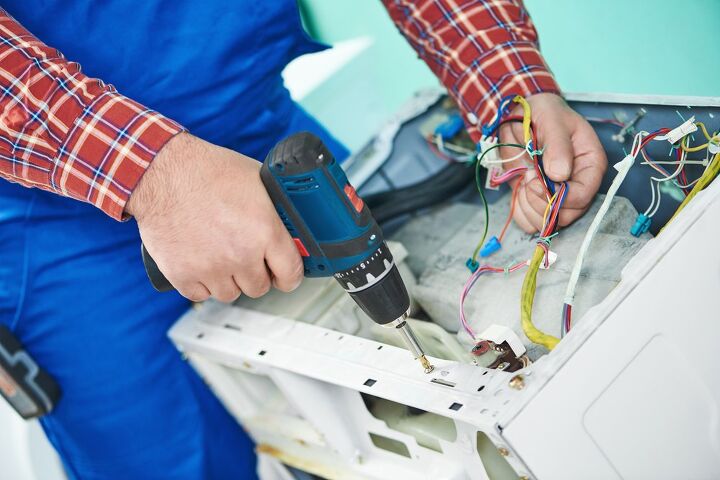







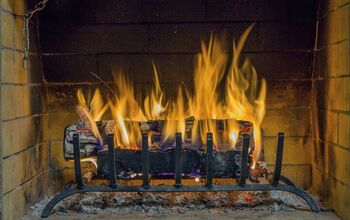
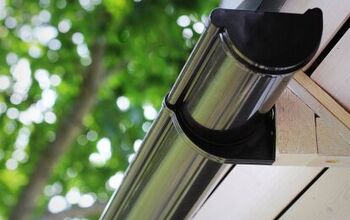
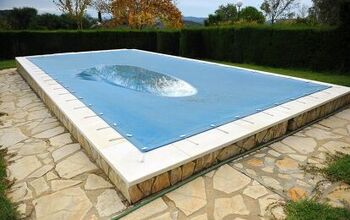
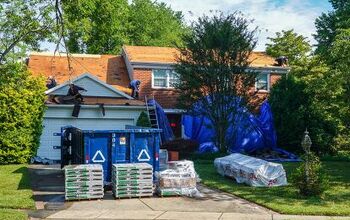
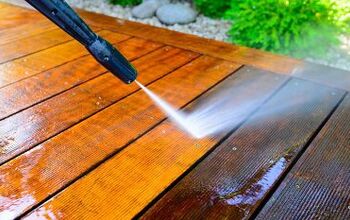
![12 Washing Machine Brands to Avoid [with Recall Data]](https://cdn-fastly.upgradedhome.com/media/2023/07/31/9075781/12-washing-machine-brands-to-avoid-with-recall-data.jpg?size=350x220)


